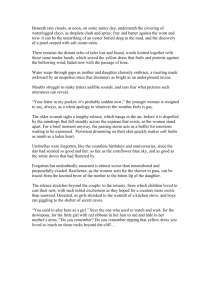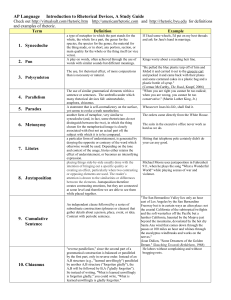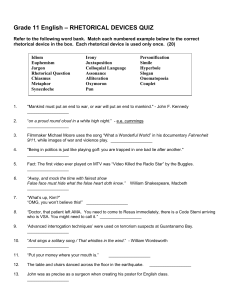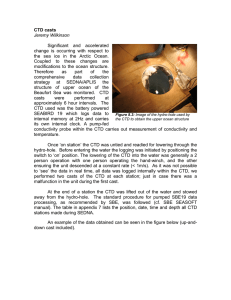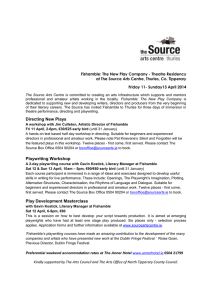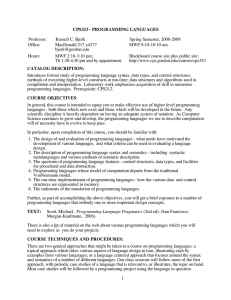Tips for Success on Paper 2
advertisement
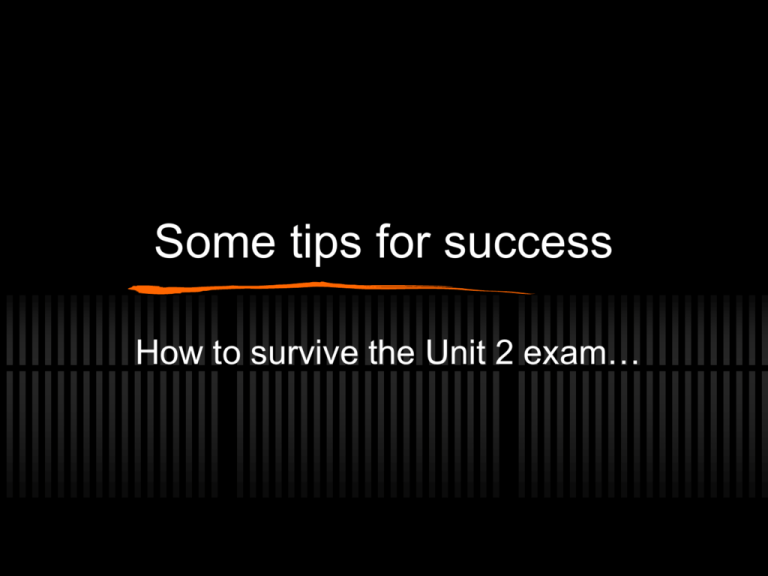
Some tips for success How to survive the Unit 2 exam… Answer the questions The question will be quite specific - so give the examiner what they want. If it asks for a formal letter or an informal speech or whatever, give them just that. If it asks you to compare two stories in relation to a particular theme, do just that. If you ANSWER THE QUESTION, you cannot go very far wrong. Make sure everything you say remains relevant and pertinent, and that you always show this. P.E.E. Each paragraph in the main body of your essay should have a: POINT (or ‘topic sentence(s)’) EXAMPLE (evidence, quotation etc.) EXPLANATION (deeper analysis) This applies to ANY writing task - and any of the questions today. Timing is all 1 hour 45 minutes in total Section A: 35 minutes Planning: 5 minutes Writing: 30 minutes Section B: 35 minutes for EACH question And remember to allow time to CHECK your work at the end. Argue Persuade Advise Powerful start and finish - VERY important Original and engaging - think of audience Lots of persuasive techniques - rhetorical tools, esp.: Rule of 3; Rhetorical Questions; Figurative; Emotive Style AND content - thread/argument Analyse Review Comment Overview - pithy and pertinent Range of examples - analysis/review Route A (+/-) or Route B (mini-analyses) Connectives and paragraph markers Comment - personal opinion Balanced and objective - different from APA Opening Worlds Thread - introduction P.E.E. - apart from intro/conc Embedded quotations - short and frequent Original ideas - backed up by examples Compare AND contrast - similarities but also significant difference(s) DON’T just tell the story Some things you might have forgotten POS begins with a long and powerful description of EDUCATION and TYRANNY. There are lots of graphic examples of the poverty of Clement’s household. RB explores two worlds - the fantasy of the fountain, the cricket game and Woodford Square; and the reality whose cobwebs he can’t shake off Poverty has destroyed Bolan’s father in almost every respect - emotionally; psychologically; and his family. Some things you might have forgotten (ctd.) LF is about tyranny - the parents’ despotism over Sidda AND Leela Sidda makes no effort to challenge or reverse the cruel hierarchy which oppresses him In YC, India (and its representative, her mother-in-law) is like an army - but also like a whirlpool, sucking Cathy into its hold Setting is very important - the flat is light and airy (and ‘pastel-coloured’); the house is heavy and oppressive. Some things you might have forgotten (ctd.) The significance of GAT is Ravi’s total annihilation at the end (his overwhelming ignominy) - all the worse for his high hopes beforehand The shed, whilst hostile at first, provides a cocoon in which for his confidence to breed for once. In WO, Savushkin is insulated against society - the ice crystals may melt, but his independence, resilience and contentment do not Anna Vasilevna’s role as teacher is reversed, and she LEARNS from Savushkin - casting a whole new light on education.
